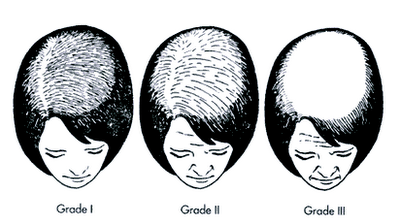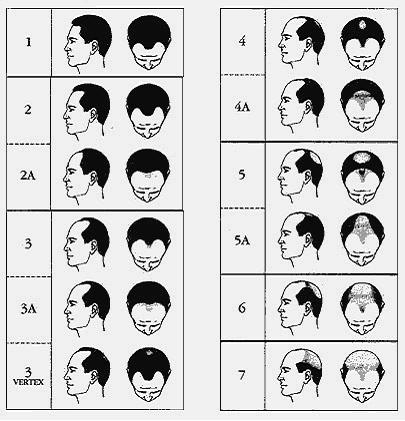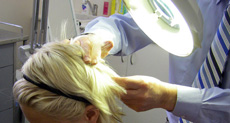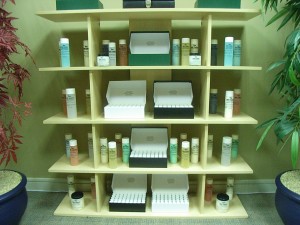29.09.2009
in HAIR LOSS SCIENCE
Losing your hair? Just glide a handheld laser over your scalp three times a week and you’ll see a benefit, say the companies selling the products. Many doctors are skeptical of claims made for the lasers, but a study found that one product did spur hair growth.
Hereditary hair loss is a medical condition that affects some 50 million American men, according to the American Academy of Dermatology. Medications, including the oral drug Propecia and the topical Rogaine, are often used to treat it. But the drugs don’t work for everyone and can have side effects, according to dermatologists.
A number of companies sell handheld, low-intensity lasers for home use that are intended to stimulate hair follicles, typically three times a week for 10 to 15 minutes. The lasers, which aren’t covered by insurance, are available online, at some doctors offices and at some retailers. The HairMax LaserComb by Lexington International LLC, Boca Raton, Fla.—which looks like a hairbrush with a cord—costs $495, with a $25 discount available online. The X-5 is a $299 rechargeable hockey-puck-shaped device sold by Spencer Forrest Inc., Westport, Conn.
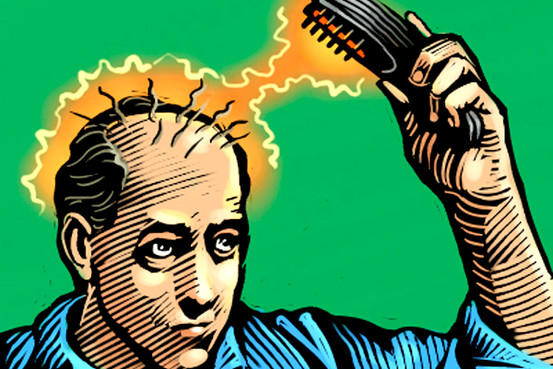
Scientists say that low-level lasers are safe and likely do act on cellular compounds that can spur hair growth. One major published study showed an average 7% increase in hair density with the HairMax after 26 weeks. But many doctors are skeptical of the claims made by the companies, particularly those that promise fast results and show clients with full heads of hair. “I think it is an expensive tool for very little difference,” says Amy McMichael, an associate professor of dermatology at Wake Forest University School of Medicine in Winston-Salem, N.C.
Eric S. Schweiger, a clinical instructor of dermatology at Mount Sinai Medical Center in New York, says the LaserComb helps grow hair, but adds that effects are often modest, typically take at least six months and aren’t seen in all patients.
It’s best to try the laser before your hair follicles are too damaged, doctors say. “If you’ve got a shiny bald head it won’t do anything,” says Michael Hamblin, associate professor of dermatology at Harvard Medical School.
The only home laser device cleared for hair growth by the Food and Drug Administration is the LaserComb, which claims to increase hair growth in men. While used by Dr. Schweiger and others for women, the device isn’t FDA cleared for them; a clinical trial is continuing, the company says.
Other companies that don’t have FDA clearance for their devices avoid making medical claims. Spencer Forrest claims the X-5 makes hair “visibly thicker,” but doesn’t promise to actually grow it. The company says it is performing trials and plans to apply for FDA clearance.
So far, Lexington International is the only company with a major published clinical study. In a 110-patient company-funded study published in the April issue of “Clinical Drug Investigation,” researchers found subjects using the LaserComb for 26 weeks saw an average increase of 17 hairs per square centimeter, or 7%, compared with a decrease of nine hairs in a control group using a sham device. Independent trials are needed to replicate the results, says Marc R. Avram, an associate professor of dermatology at Weill Cornell Medical Center in New York. A small pilot study at Weill failed to replicate the findings but larger, controlled studies are needed, he adds.
In May 2008, Lexington received an FDA warning letter alleging it was selling a different device than the one cleared for sale in 2007. Company owner David Michaels says the company did substitute a similar laser with an equivalent output and thought the change was permissible based on “legal advice,” but switched back to the original when it got the warning letter. The FDA says the issues from the warning letter, which included marketing to women on the company’s Web site, have been resolved.
So far the only side effects reported with the lasers have been itching and tingling of the scalp.
Do you have Hair Loss Problems, read our Hair Loss Help







